“Torture persists and is making a comeback”
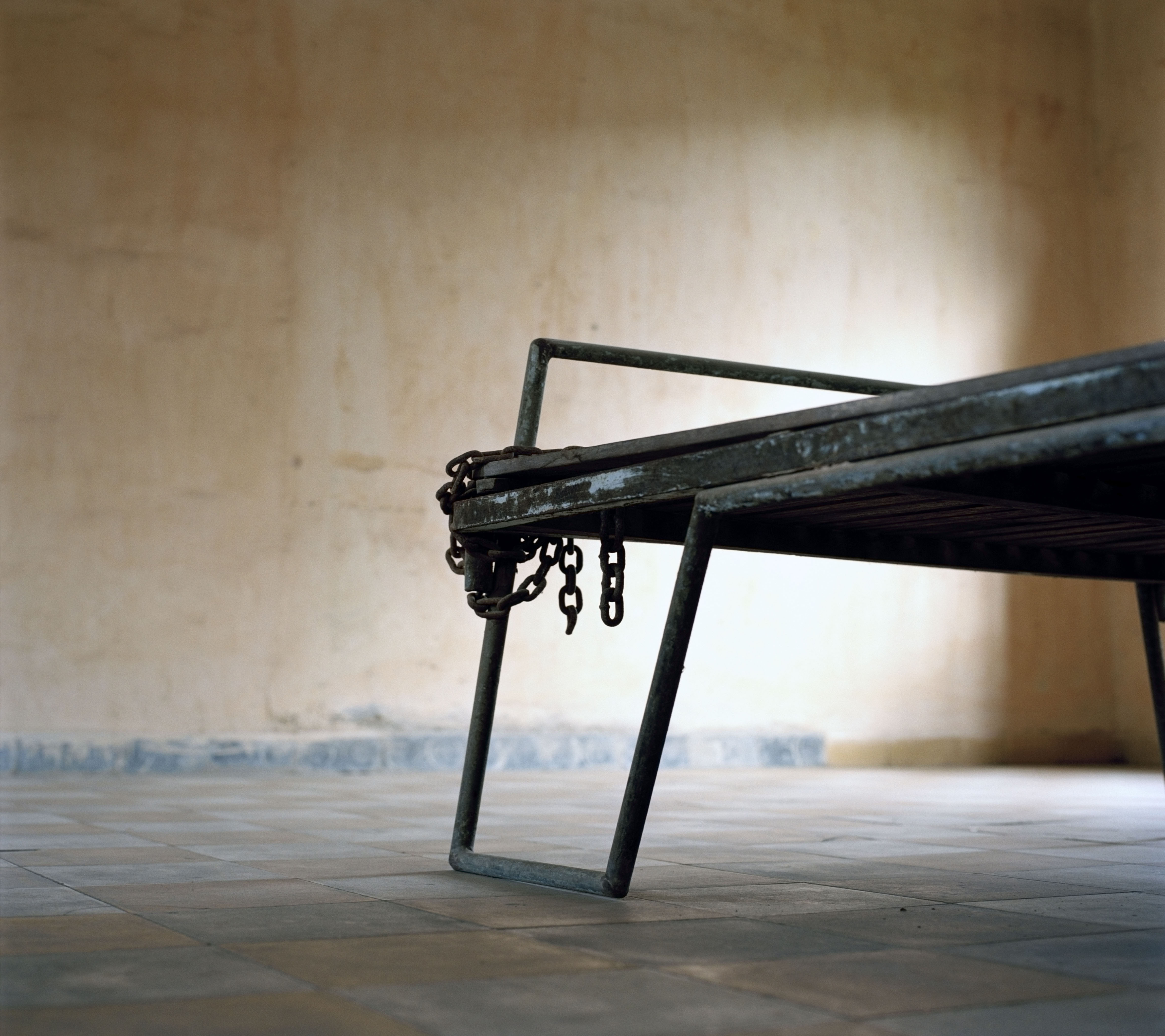
On the occasion of the International Day in Support of Victims of Torture, swissinfo.ch speaks to the United Nations Special Rapporteur on Torture. Having been a victim himself, Juan E. Méndez decided to spend the rest of his life fighting torture.
During the Argentine military dictatorship of the late 1970s and early 1980s Méndez was arrested and subjected to 18 months of torture by the ruling military junta. He was released under pressure from Amnesty International, which secured his expatriation to the United States.
swissinfo.ch: How do you view the situation in Syria?
Juan E. Méndez: It’s so serious that we are seeing everything from extrajudicial executions to systematic torture. The repression is so brutal that it can be considered torture. Despite our efforts, the Syrian government is not giving us answers. Everything we as rapporteurs can try to do is frustrated, because the Security Council appears completely indecisive on the subject of Syria.
swissinfo.ch: Has your task changed since the Arab spring?
J.E.M: I’m very worried about Libya, because there are many militias, not answerable to government, who are thought to be committing torture regularly in clandestine jails.
I believe the international community must be firm with the Libyan government and urge it to do something. As for Egypt, I have requested an invitation, but my request remains unanswered.
The human rights trend seems to be improving, but this is an uncertain juncture. The Egyptian public must now channel their powerful energies through the institutions of limited government.
swissinfo.ch: Do you notice improvements in the region, in putting a stop to endemic practices of torture?
J.E.M.: Tunisia is changing slowly but surely. The new, post-revolution government has good intentions, but cannot eliminate torture by order. In fact the practice continues, though it is less serious than before.
It isn’t easy for the security forces to adapt to the new reality. Now it is necessary to bring those responsible for the former regime’s crimes to trial, to punish them, and to compensate the victims, although 20 years have passed. The torture inflicted in Tunisia under Ben Ali was terrible and nearly surpasses everything we have seen.
swissinfo.ch: What do you hope to achieve within the terms of your mandate?
J.E.M.: We want these countries to conform to the universal standard. All detentions must be registered. All detention centres must be known and subject to periodic inspections. These measures are simple commonsense.
Torture persists and is making a comeback. We are seeing this in Latin America. As long as the security forces feel that civil society is not watching them, they revert to their old habits, because they yield faster results.
What I mean is that democracy has not been able to eliminate torture entirely. The police forces remain self-governing and act in a mistaken esprit de corps. In other words, if the police use torture, others cover up for them rather than reporting them.
swissinfo.ch: What about Latin American jails?
J.E.M: This is a serious problem. In the most democratic countries of [Latin] America, conditions are still appalling. People are so frightened of criminality that they prefer to shut their eyes to this reality and not to get involved in discussion of the subject.
swissinfo.ch: Is that why there have been riots in Latin American jails?
J.E.M: Yes, indeed. Conditions in some prisons in Argentina and elsewhere are massively overcrowded. The warders themselves incite internal violence and give power to extremely violent, predatory groups.
One dreadful example are the prisons in Venezuela, where it is the government’s declared policy not to practise torture. However, Venezuelan prisons are such a terrifying example that we are even receiving reports of warders staging gladiatorial combats, in which prisoners fight to the death while bets of money are placed.
swissinfo.ch: Is isolation a common practice in prisons?
J.E.M.: I don’t have detailed statistics, but I can assure you that the use of isolation and solitary confinement is increasing worldwide, as a means of punishment and also for people with mental problems and minors.
swissinfo.ch: Which countries worry you most?
J.E.M.: The focuses of greatest concern are those countries which do not invite me, or which do invite me and then cancel, like Bahrain. There are some countries which we have been asking for permission for 18 years, with no response.
swissinfo.ch: What can you do on these visits?
J.E.M.: I depend on being invited: without that, I cannot enter. But, once I arrive, I am independent and have access to all detention centres. I alone decide when and where to go.
The government of the host country makes it known that the Special Rapporteur is in the country and that, if he arrives, he must be allowed access to everything. No door can be left closed. I can also talk unsupervised to any detainee. Another essential factor is that we can talk to any other civilian, when and where we wish, without anyone fearing persecution or reprisals.
swissinfo.ch: We usually associate torture with the developing world. Are there cases in the developed nations of the West?
J.E.M.: Since the War on Terror was declared after September 11, 2001, we have seen a resurgence of torture in places such as the US. That includes some more serious forms of torture, such as waterboarding. People take this lightly, but to cause asphyxia is an extremely serious matter.
Let’s not forget, either, that this war uses psychological torture, which lays hands on no-one, but which makes its mark nonetheless. To spend 23 hours a day in a cell four metres square is actual torture. We have to act against both physical and mental torture.
swissinfo.ch: I suppose you are referring to Guantánamo and the Bush era. Has anything changed since then?
J.E.M.: The day after assuming the presidency, President Obama gave orders prohibiting torture and enforcing the Uniform Code of Military Justice. It is striking to note that there have been no new reports of torture from the US in the past three years. All cases known to the Human Rights Council date from the previous administration.
swissinfo.ch: In other words the United States is doing what is expected of it …?
J.E.M.: Not quite, because the state cannot limit itself to prohibiting torture. It has to prosecute, try and punish cases which predate the current administration. Regrettably, the Obama administration is apparently steadfast in preventing any kind of investigation into the use of torture during the Bush presidency.
The reply we receive from Washington is dead silence. On the pretext of security and state secrecy, Obama is preventing the investigation of quite specific cases. The US continues, right now, to violate its international obligations.
Born in Mar del Plata, Argentina, in 1944, he graduated in law in 1970 and acted as a defence counsel for political prisoners.
He was arrested and subjected to 18 months of torture by the military junta. He was released in the late 1970s under pressure from Amnesty International, which secured his expatriation to the US.
There he remained vocal in the defence of migrant workers’ and civil rights. For 15 years he worked for Human Rights Watch, a non-governmental organisation. He was Professor of Law and Director of the Center for Civil and Human Rights at the University of Notre Dame, Indiana.
The former UN Secretary-General, Kofi Annan, appointed him Special Advisor on the Prevention of Genocide, a role he held from 2004 to 2007.
He is a Visiting Professor at the American University (Washington) and has taught at John Hopkins, Oxford and Georgetown universities. He has won many prizes, distinctions and honours in Europe and America.
In November 2010 he was appointed UN Special Rapporteur on Torture.
According to the United Nations Special Rapporteur on Torture, Juan E. Méndez, the most widely accepted definition of torture is “pain or suffering intentionally inflicted by a public official for purposes of interrogation or punishment”.
“There has to be a degree of severity about the pain inflicted. Below a threshold of suffering, we enter the category of inhumane and degrading treatment not reaching the levels of torture,” explains Méndez.
“If we are to speak of torture in the strict sense, there must be a deliberate wish to cause acute suffering and pain. Degrading treatment may be inadvertent, deriving from objective conditions such as sub-human conditions of detention.”
The United Nations Special Rapporteur on Torture is part of a mechanism set up by the Human Rights Council (HRC) to deal with specific matters.
The Special Rapporteur follows three working methods. The first consists of making public complaints. The second is to visit countries, though this depends on an invitation from the country concerned. Having arrived, he speaks to the authorities, representatives of civil society and specifically with the victims.
The third method is to adopt a theme related to the mandate – cases where there are gaps in existing laws – to develop this in consultation with specialists and via investigations, and to propose new and universal standards.
Juan E. Méndez has written one report on isolation and solitary confinement and another on commission of inquiry into cases of secret torture.

In compliance with the JTI standards
More: SWI swissinfo.ch certified by the Journalism Trust Initiative
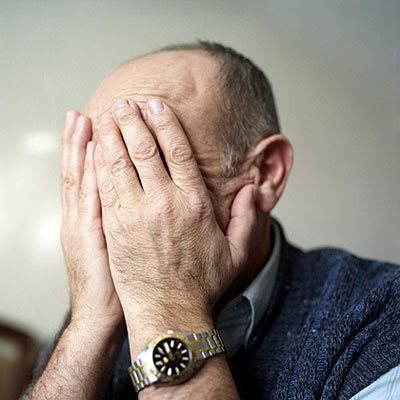
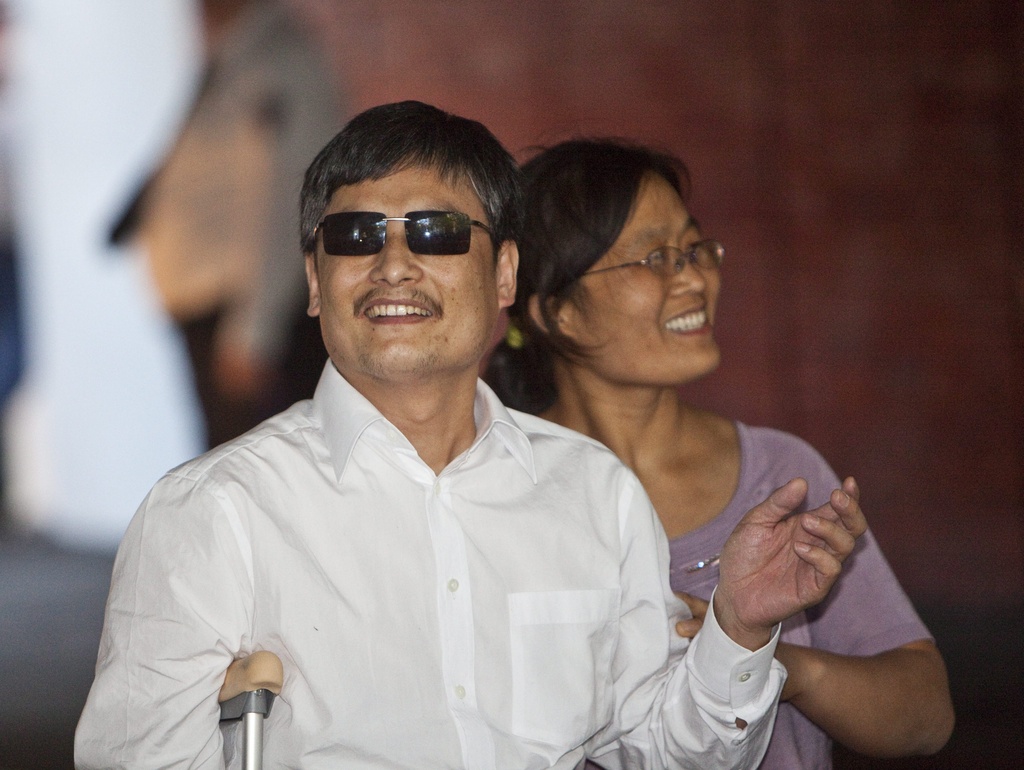
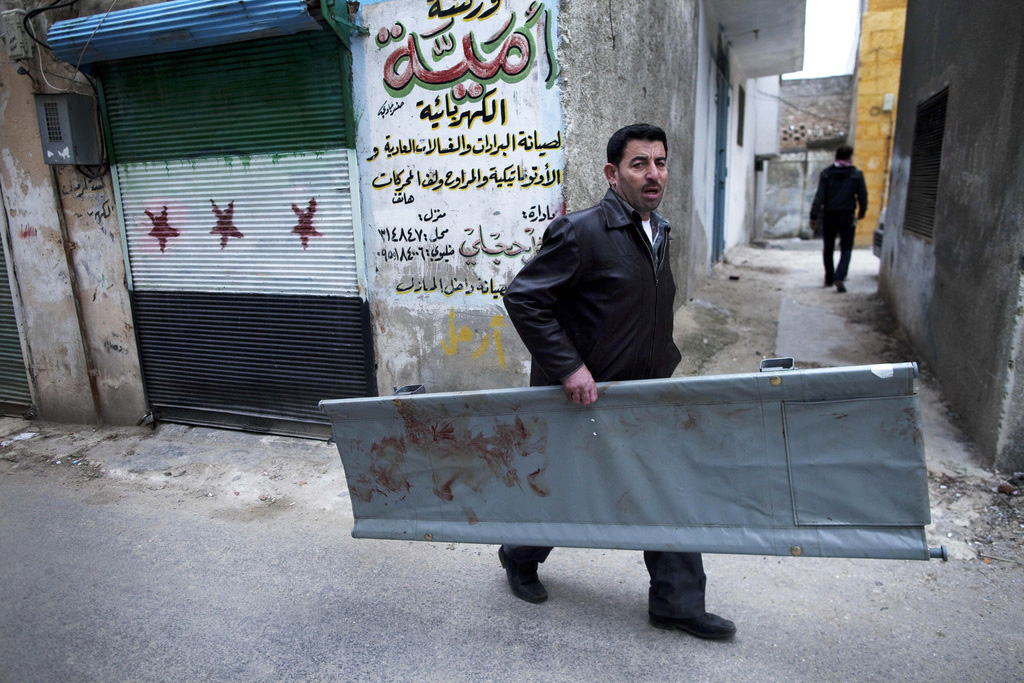

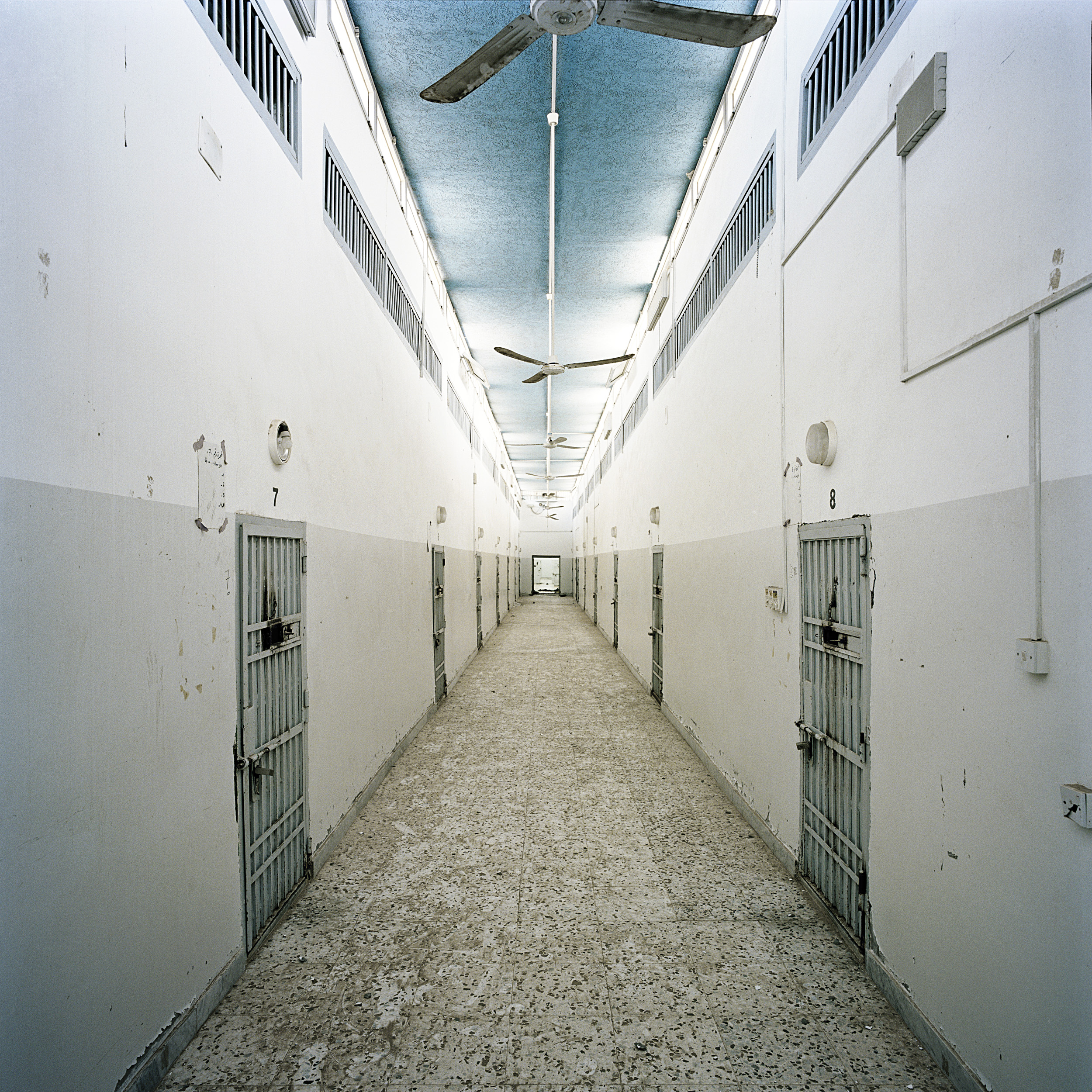
You can find an overview of ongoing debates with our journalists here. Please join us!
If you want to start a conversation about a topic raised in this article or want to report factual errors, email us at english@swissinfo.ch.